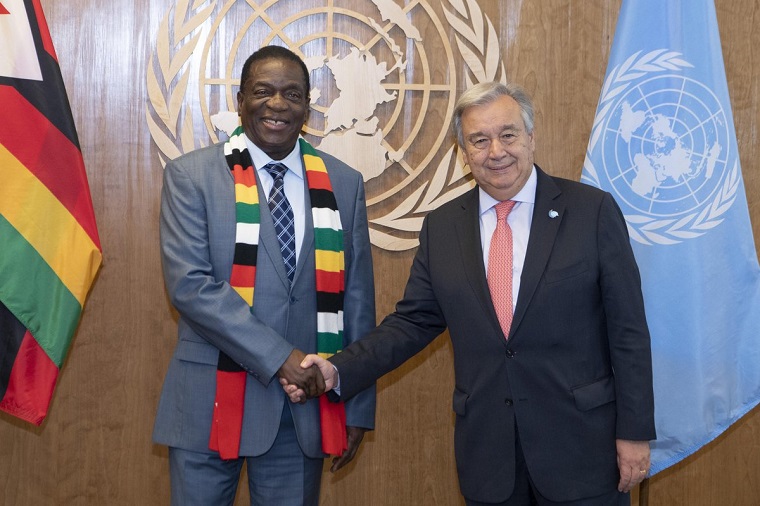There is genuine enthusiasm for Mnangagwa’s presidency in Zimbabwe. It is particularly present among the professional middle classes in Harare, long among the MDC’s most fervent supporters. Chamisa, a career politician at just 40, was widely viewed as lacking the experience and vision to revive the economy. There were also widespread frustrations that Chamisa could not unite the opposition, leading to 23 presidential candidates contesting the election. This disunity was a major reason ZANU-PF took parliament so overwhelmingly, as competing opposition candidates siphoned off votes from one another.
Ultimately, no matter what you think of Mnangagwa or the election, the process is over. He won, and he will be in office for five years. The question now, particularly in Washington, is what to do next. Alongside such pariahs as North Korea, Syria, and Iran, Zimbabwe is subject to a US sanctions regime covered by the Zimbabwe Democracy and Economic Recovery Act of 2001 – recently renewed and amended – and targeted sanctions against more than 100 individuals (including Mnangagwa) and entities affiliated with the government. Given the limited ties between Zimbabwe and the US, these regimes have been largely symbolic, and have certainly had no impact on influencing the type of governmental change sought by Washington.
However, they do hurt one group, US businesses. President Mnangagwa has made it clear that Zimbabwe is open for business, and for those readers not familiar with the country, it has immense opportunities. Zimbabwe has a bonanza of minerals, including some of the world’s largest platinum and lithium reserves; a once-robust agricultural sector that could be turned around with minimal investment; the best human capital in Africa, with a 90+ percent literacy rate; immense tourism potential; and a strategic location in the heart of southern Africa. In short, Zimbabwe has it all, but it needs investment in all sectors, not to mention key infrastructure such as roads and power plants.
Investors in a range of sectors are already lining up, from all corners of the world…but ours. Admittedly, American businesses are not the most adventurous creatures in Africa, but when gauging interest of companies in Zimbabwe, the sanctions issue comes up again and again. Even though very few investments would actually run afoul of the sanctions regime, just the word ‘sanctions’ is enough to make most companies wave off and find safer jurisdictions. And even US investors on the ground who know they are compliant note that the spectre of sanctions is enough to make them deeply uncomfortable.
At the end of the day, sanctions on Zimbabwe means that US businesses lose out. It’s a shame. Things have changed in Zimbabwe, and now that President Mnangagwa has been inaugurated with a democratic mandate, his reforms to further improve the investment climate will continue apace. I have full confidence that Zimbabwe is on the brink of an economic turnaround and will emerge shortly as one of Africa’s fastest growing economies. Lots of people will make money there. But barring a shift of Washington’s outdated and wrong-headed policies, Americans won’t be among them.
By Dr. John Siko for The Source
(431 VIEWS)


